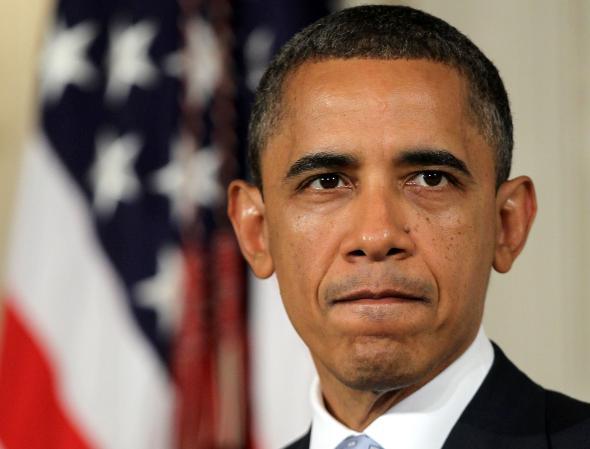The House of Representatives may be on board with President Obama’s plan to back rebel groups in Syria, but the American public isn’t so sure about how he’s handling the situation.
A new New York Times/CBS poll finds that for the first time, as many as 50 percent of Americans disapprove of how the president “is handling the threat of terrorism.” Fifty-eight percent disapprove of his foreign policy in general and 48 percent fault him on his handling of ISIS in particular. (With regards to ISIS, 39 percent approve of the president’s approach and 13 percent don’t know or didn’t answer.) While congressional Republicans are overwhelmingly unpopular, healthy majorities say the GOP would be better at dealing with terrorism and foreign policy.
When you look at the anti-ISIS strategy Americans want, though, it’s not that different from what Obama is proposing. Healthy majorities favor airstrikes against ISIS in Iraq (71 percent) and Syria (69 percent) and deploying more military advisors to Iraq (66 percent). Only 48 percent support arming Syrian rebels although majorities of both Democrats and Republicans think it’s a good idea. (Independents are more skeptical, perhaps reflecting the unlikely coalition of isolationist Republicans and left-leaning Democrats who have opposed the president’s military plans in Congress.)
Americans do not support sending ground troops to fight ISIS, as the president has repeatedly pledged not to do (though his military advisors seem a little less sure).
But in general, Americans seem to be faulting the president for giving them exactly the sort of counterterrorism strategy (heavy on drones and proxies, light on ground troops) that they want.
There are arguments to be made that Obama should have ordered action against ISIS earlier, or that he was too reluctant to engage in the Syrian civil war back when the U.S. could have played a more productive role. But these are exactly the sorts of actions Americans overwhelmingly opposed until very recently.
It could just be that at this point, Obama’s association with a policy is viewed negatively even if it’s a policy the public basically supports. Or it could just be that Americans are freaked out by ISIS but don’t really know what they want to do about it.
